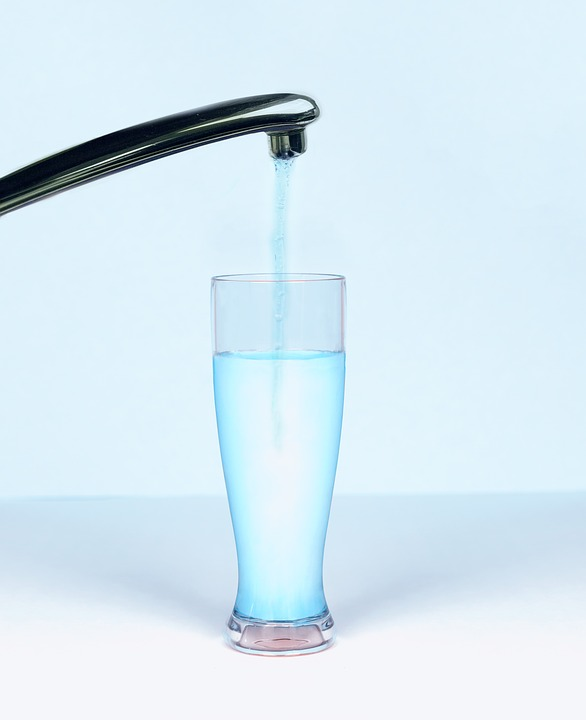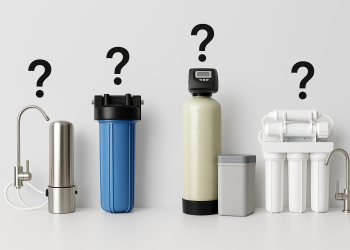Table of Contents
Have you ever heard of distilled water? Better yet, is it possible to drink distilled water? The latter question is what has attracted people from both positive and negative press. Some encourage drinking distilled water for its outstanding purity, whereas others discourage people from drinking it due to several possible health risks.
Worry not, for we have the answer to all your questions here in this article.
What is Distilled Water?
Distilled water has been purified using steam generated from boiling water, which is then cooled down and returned to its liquid state. This process helps remove impurities from water, such as chemicals, minerals, and toxins. Whether it comes from a natural spring, regular tap, or artesian well, all water types could have traces of pesticides, bacteria, and minerals, among other contaminants. The distillation process removes approximately 99.9% of those minerals.
The process of distillation isn’t exactly new. Distillation is an old practice of purifying water. However, it is comparatively difficult to execute without the use of a water distillation machine.
So now, the question on everyone’s mind is: “can you drink distilled water?”
Is Distilled Water Safe to Drink?
Yes, it’s safe to drink distilled water. This is obviously the case since it’s water in its most purified state. As such, there are hardly any health risks associated with it.
There are some who claim that distilled water can help detoxify our body in ways that other purified forms of water cannot. However, there is little evidence to support such a claim as of right now.
But despite the distillation process removing all the harmful substances and chemicals inside pre-distilled water, registered nutritionist and dietitian Amy Shapiro mentions that the process also eliminates several of the water’s essential nutrients. Shapiro says that a decrease in magnesium and calcium could result in an electrolyte imbalance, as well as a potential metabolic imbalance. She further added that if we relied too much on drinking distilled water, especially when exercising, given the lack of minerals, it could lead to an even bigger imbalance of our electrolytes instead of replenishment.
According to Jennifer Maeng, a New York City based-nutritionist, distilled water can probably pick up and absorb even more contaminants from around us. She says it attracts harmful compounds from metals, containers, pipes, and plastic bottles. She does, however, recommend we drink distilled water if it comes in a BPA-free plastic container. If you want to learn how to make distilled water, check this site out.
Uses of Distilled Water
If you prefer water in its finest form, then distilled water can be used in the following applications:
- Machines that can get clogged up due to mineral buildups, such as humidifiers or irons.
- Medical procedures like dialysis. If you use a nasal-cleansing NetiPot, then you must use distilled water.
- Aquariums. Just ensure that whatever food you’re giving your fish contains the essential minerals for their health.
- Watering plants. Several studies suggest that seeds that have been watered using distilled water grow healthier and faster.
Difference Between Distilled, Filtered, Purified, and Tap Water
- Distilled water is the kind of water purified to get rid of minerals and salts and harmful compounds and chemicals. This process is achieved by collecting the steam from boiling water.
- Tap Water: is, as the name indicates, water that comes straight from the faucet. It’s the type of water that has been possibly disinfected using chlorine, treated with chemicals so that it can neutralize dirt, and filtered to get rid of sediments. Fluoride also gets added to keep tooth decay at bay.
- Filtered water: is tap water that has been purified by running it through filters to remove chlorine and other impurities such as chemicals and bacteria. This is the type of water that makes it into bottles. However, different kinds of filters remove different types of chemicals and bacteria.
- Purified water: is water that’s free of any chemicals in microbes. This is achieved by either distillation, organization, or reverse osmosis. It has to meet the EPA’s standards, which does not consist of more than 10 parts per million of the overall dissolved solids to be considered purified.
Reasons Why You Can’t Drink Distilled Water
But whether purified or not, there are also several reasons why you can’t drink distilled water. Some of those reasons include:
Lack of Replacing Minerals That Are Lost by Sweat
When the body loses water via urine output or sweating, it loses sodium and other types of minerals besides water. To ensure the body functions properly, the minerals have to be replaced. Unfortunately, drinking distilled water won’t do that since all the essential minerals and additives are removed during the distillation process.
Fortunately, this problem is easily remedied by eating other types of beverages and food that replenish our supply of essential minerals and salts. If distilled water served as our only means of replenishment, then the lack of additives and minerals would pose a tremendous risk.
Changing Mineral, pH, and Electrolyte Balance of Tissues and Blood
In some of the more extreme cases, when we only drink distilled water without getting the proper nutrition, we contract a condition known as “acidosis” due to the water’s more acidic pH value. Although this is a rare circumstance, it is possible to acquire this when we drink large amounts of distilled water.
Fasting and Then Drinking Distilled Water Could be Dangerous
Drinking distilled water isn’t dangerous if it’s part of a balanced diet, mostly when it consists of foods that can replace all of the lost minerals because of sweat.
However, fasting for long periods, and then only drinking distilled water could pose a severe threat, as we’re not replacing any of the minerals we lose from sweat. That is why we need to consult with our healthcare professional before undergoing any type of extreme fast.








